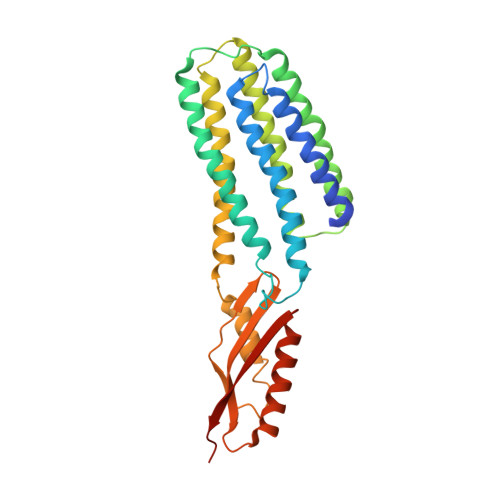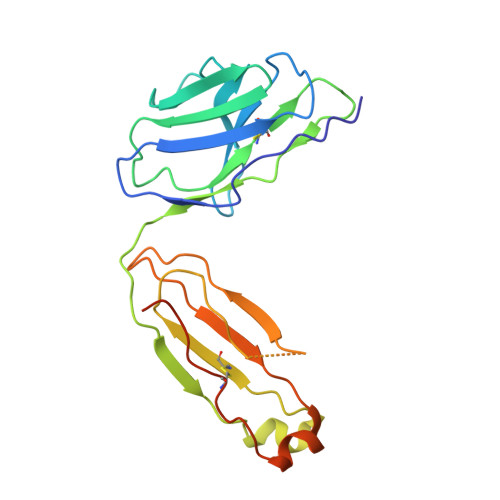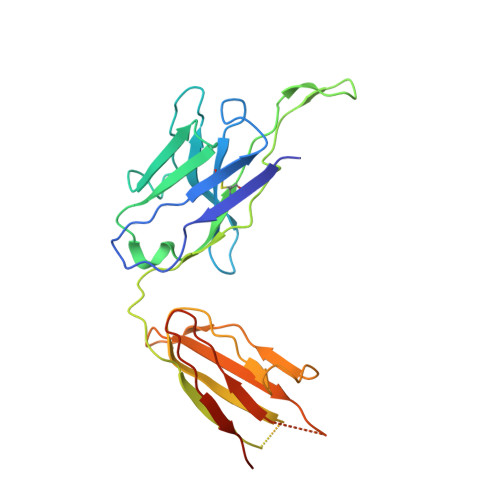Energy coupling and stoichiometry of Zn 2+ /H + antiport by the prokaryotic cation diffusion facilitator YiiP.
Hussein, A., Fan, S., Lopez-Redondo, M., Kenney, I., Zhang, X., Beckstein, O., Stokes, D.L.(2023) Elife 12
- PubMed: 37906094
- DOI: https://doi.org/10.7554/eLife.87167
- Primary Citation of Related Structures:
8F6E, 8F6F, 8F6H, 8F6I, 8F6J, 8F6K - PubMed Abstract:
YiiP from Shewanella oneidensis is a prokaryotic Zn 2+ /H + antiporter that serves as a model for the Cation Diffusion Facilitator (CDF) superfamily, members of which are generally responsible for homeostasis of transition metal ions. Previous studies of YiiP as well as related CDF transporters have established a homodimeric architecture and the presence of three distinct Zn 2+ binding sites named A, B, and C. In this study, we use cryo-EM, microscale thermophoresis and molecular dynamics simulations to address the structural and functional roles of individual sites as well as the interplay between Zn 2+ binding and protonation. Structural studies indicate that site C in the cytoplasmic domain is primarily responsible for stabilizing the dimer and that site B at the cytoplasmic membrane surface controls the structural transition from an inward facing conformation to an occluded conformation. Binding data show that intramembrane site A, which is directly responsible for transport, has a dramatic pH dependence consistent with coupling to the proton motive force. A comprehensive thermodynamic model encompassing Zn 2+ binding and protonation states of individual residues indicates a transport stoichiometry of 1 Zn 2+ to 2-3 H + depending on the external pH. This stoichiometry would be favorable in a physiological context, allowing the cell to use the proton gradient as well as the membrane potential to drive the export of Zn 2+ .
- Department of Biochemistry and Molecular Pharmacology, NYU School of Medicine, New York, United States.
Organizational Affiliation:



















